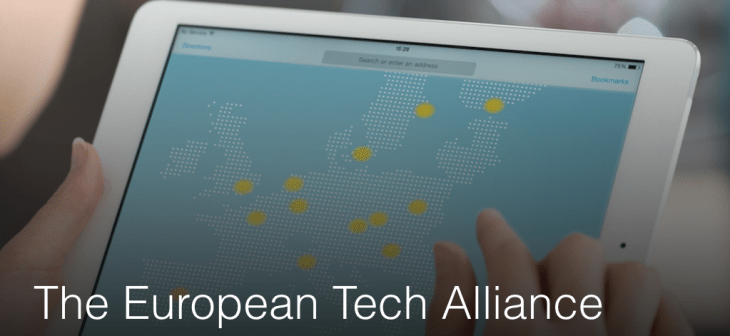A group of European tech companies have formed a lobby group with the aim of furthering the interests of homegrown digital companies by working to shape regional policy to better help local startups scale up.
The group also wants to offer an alternative — i.e. local — perspective to the U.S. tech giants who typically dominate the digital lobbying landscape in Brussels.
Member businesses span various tech areas — from e-commerce, to security, to mobile gaming — with the 25 initial members including the likes of BlaBlaCar, Spotify and SwiftKey. The group’s founder and president is Skype co-founder and Atomico founder and CEO Niklas Zennström.
“We have formed an alliance to share our collective experience with policymakers and challenge mindsets about Europe, technology, and the Internet,” said Zennström in a statement.
“There are so many European tech company success stories. We think we will be able to help European leaders understand that Europe is good at tech and show how policymakers can clear the way for the tech industry to grow further.”
The initiative, which is called the European Technology Alliance, was announced today at an event attended by Andrus Ansip, the European Commission’s VP who is heading up the Digital Single Market (DSM) strategy — aka the big European political initiative the Alliance is hoping to shape with its input in the near term. The EC is currently consulting on priorities and standards for the DSM.
“We share the political aims for embracing digitisation with confidence. We also share pride in Europe’s digital capacities,” said Ansip speaking at the launch, and noting that the aim of the DSM strategy is to remove barriers to digital growth — such as regional market fragmentation — which he asserted have been preventing European startups from scaling up to become “global companies”.
“My door is open. Tell us what is needed and if our direction is the right one,” Ansip added.
A spokesman for the Alliance, Fabrizio Porrino of Italian business FacilityLive, told TechCrunch the group has not yet established common policy positions at this nascent stage. Formalizing the way it is run, reviewing new member requests and establishing things like vote metrics will be the first order of business, as it works to agree on those common positions to lobby for.
Funding has also not been formalized at this point, with member companies contributing “what they can” to get things up and running.
“The Alliance is being formed because there was a request come in from the Commission. The issue is nowadays in Brussels you already have many so-called lobby groups that are somehow European but when you look at the membership many of them — they are 90 or 80 per cent run by American or non-European companies,” said Porrino.
“So the issue is for credibility. We are not saying that these companies should not be trusted but these companies they grow elsewhere… We want to get a different story. It’s a group of companies that were born in Europe. So they’ve faced all the problems that we have or may not have in Europe. And then from Europe you went global. So it’s a totally different angle [vs tech companies that scaled up outside Europe].”
“I’m not sure that a company that was born in the U.S. knows how to make it in Europe,” he added. “This is the main point of the Alliance. We are putting together everybody’s experience on the table, we’re going to share experience, we’re going to tell how we made it, how we’re becoming global.”
To become a member of the alliance, a company must be “European in origin” and “perceived as a European company”, as Porrino put it. “Not anybody can join.”
Porrino said it will be running internal working groups to discuss policy points and see if it can establish common positions to put in front of European politicians.
“At the moment there is momentum that has been created before [via other EU initiatives such as The Startup Manifesto] and because also institutions they have understood that if you want to be a global player, and does not want to be just a follower, it has to create its own industrial base, its own digital economy base,” he added.
